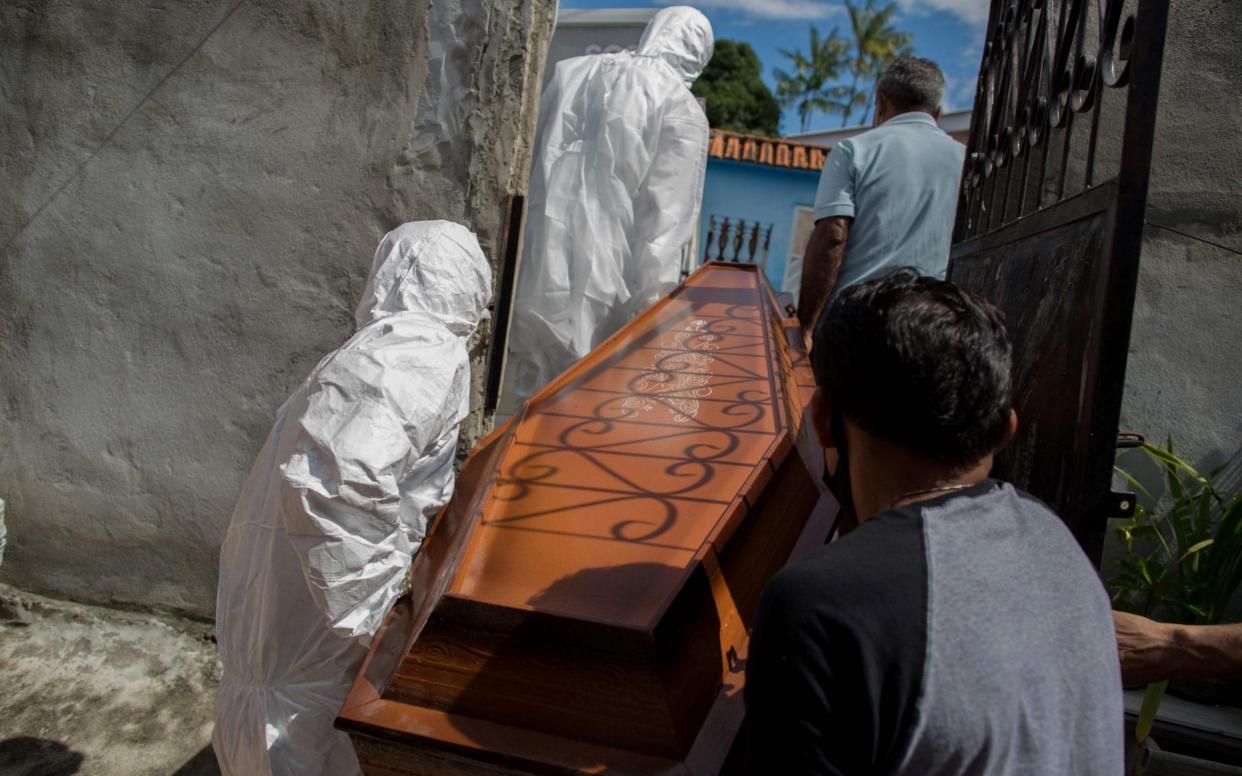World’s deadliest day as more than 17,000 people die from Covid


The Covid-19 pandemic has again claimed a new record for its deadliest day, as the number of reported global deaths topped 17,500 on Wednesday.
Covid-19 continues to rage around the world despite the start of vaccination campaigns according to data from Johns Hopkins University.
The January 20 toll beat the previous record from 12 days earlier and came as both the UK and the US reported heavy daily tallies of deaths.
The UK government reported 1,820 deaths on the same day, its most yet, and America reported another 4,229 virus-related fatalities, its second highest daily total.
The early stages of vaccine campaigns have yet to tame the winter wave tearing through the northern hemisphere. Governments have warned of more heavy death tolls before anything gets better.
A widely watched model from the University of Washington's Institute for Health Metrics and Evaluation (IHME) predicts global deaths staying at a similar level for the next week or so, before dropping in early February.
America continues to record the worst outbreak in the world and a forecast from the Centers for Disease Control estimated that the US death toll could hit 508,000 by February 13.
Mexico, another of the world's most badly hit countries, recorded a second consecutive day of Covid-19 deaths topping 1,500.
The World Health Organization's most recent weekly analysis said some 4.7 million new cases were reported in the week to Sunday, January 17, a decline of six per cent from the previous week. Yet the number of new deaths had climbed to a record high at 93 000, up nine per cent from the previous week.
Joe Biden's new administration meanwhile said it would join the WHO's international scheme to deliver vaccines to poorer countries, after Donald Trump quit the agency and shunned the Covax initiative.
Dr Anthony Fauci, told the WHO on Thursday that the new White House would remain a member of the UN agency.
“This is a good day for WHO and a good day for global health,” WHO director-general Tedros Adhanom Ghebreyesus said. “WHO is a family of nations and we are all glad that the US is staying in the family,” he added.
The first consignments of vaccines paid for under the Covax scheme are due to be shipped in February.
“We welcome the decision by the United States to join the Covax facility, because vaccinating our own populations is not enough scientifically or morally,” Britain's ambassador, Julian Braithwaite, told the WHO board.
“We need a global vaccination campaign if we are to overcome this global pandemic.”
Protect yourself and your family by learning more about Global Health Security

 Yahoo News
Yahoo News 
